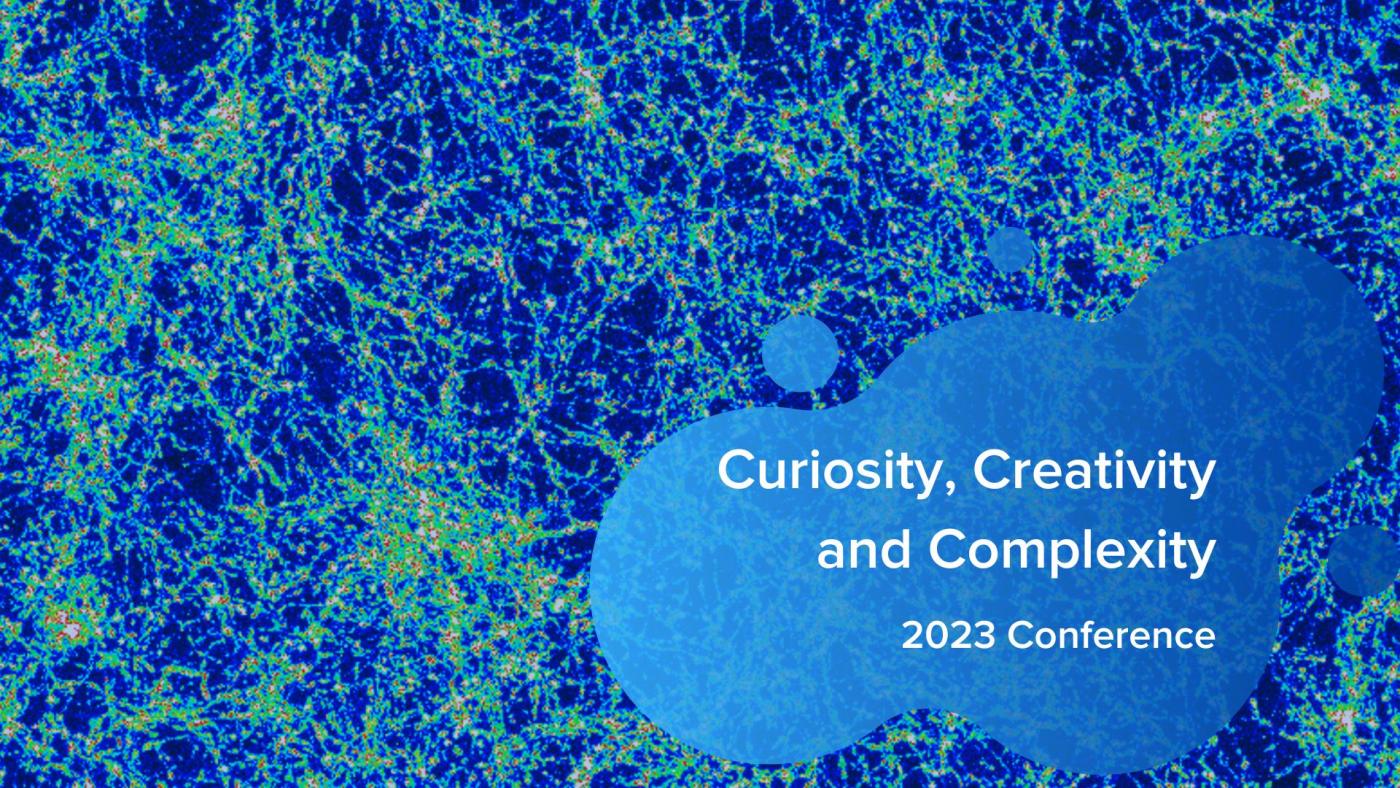How does the brain cope with Complexity? How do we make decisions when confronted with practically infinite streams of information? A three-day conference dedicated to the idea that Curiosity and Creativity play key roles in this process will be hosted at Columbia’s Zuckerman Institute on May 23-25, 2023.
Tune in here:
The conference showcases cutting edge research on these questions in Neuroscience and Psychology (neural mechanisms of cognitive control, exploration, decision-making, information demand, memory and creativity), Computer Science (artificial intelligence of curiosity and intrinsic motivation) and Economics (decision making and information demand). Alongside formal presentations, the conference will encourage ample interactions among faculty, students and postdocs through informal discussions and poster presentations. The full agenda can be viewed here.
List of Speakers
|
Jessica Andrews-Hanna, PhD |
Bruno Averbeck, PhD |
|
Kalina Christoff, PhD |
Floris de Lange, PhD |
|
Joy Geng, PhD |
Russel Golman |
|
Mattias Gruber, PhD |
Todd Gureckis, PhD |
|
Catherine Hartley, PhD |
Benjamin Hayden, PhD |
|
Ming Hsu, PhD |
Ifat Levy, PhD |
|
Yusufcan Masatlioglu |
Ilya Monosov, PhD |
|
Pietro Ortoleva |
Ian Osband, PhD |
|
Michaela Pagel, PhD |
Daniel Polani, PhD |
|
Daniel Schacter, PhD |
Tali Sharot, PhD |
|
Kinneret Teodorescu, PhD |
|
|
Angela Yu, PhD |
|
Poster Session
The conference will include a poster session led by early career scientists (postdocs and graduate students), featuring the research from a diversity of disciplines in reflection of the overall conference.
Accessibility
The Conference will take place at the Zuckerman Institute, located at the Jerome L. Greene Science Center, 3227 Broadway, NY 10027. The Zuckerman Institute is fully accessible, with accessible entrances located at the main entrance, 3227 Broadway and south entrance, 609 W 129th Street. Conference attendees will have access to a personal lactation space (Mamava pod), located on the 8th Floor. This Mamava pod is self-contained with comfortable benches, a fold-down table, an electrical outlet and a door that can be locked for privacy. Conference attendees will have access to a communal meditation/quiet room for use throughout the day. The auditorium supports assisted listening devices, and assisted listening devices are available upon request. The virtual component will be enabled for closed captioning.
If you have specific accessibility requirements or needs, please contact [email protected] or Columbia’s Office of Disability Services, 212-854-2388 and [email protected].
Accommodations and Visitor Information
The Mortimer B. Zuckerman Mind Brain Behavior Institute is located at Columbia University’s Manhattanville Campus. Download a campus map here, and learn more about our campus neighbors. Columbia University has negotiated discounted rates with select vendors, which offer competitive pricing and value-added amenities. To book a car or hotel reservation new users must create an account to access the Visitors Online Booking Tool. Registered users may sign in to the Visitors Online Booking Tool to book Columbia negotiated rates or to change/cancel an existing reservation. Full details, including airport information, directions to campus, and parking information, can be found here.
Local Restaurant & Dining Information
Columbia University supports locally owned restaurants, stores, and other businesses that provide jobs and economic stimulus in the neighborhoods where they're based.
Dining in West Harlem
Dining in Morningside Heights
A full list offsite dining options can be found here: Dine Local Directory, or search OpenTable here.
Steering Committee
Jacqueline Gottlieb, PhD, Columbia University
Pierre Yves Oudeyer, PhD, INRIA, France
Robert Wilson, PhD, University of Arizona
Amitai Shenhav, PhD, Brown University
Elliot Ludvig, PhD, University of Warwick
Mark Dean, PhD, Columbia University
The Steering Committee gratefully acknowledges the many people who are helping plan, organize and run the conference.
The conference is jointly sponsored by Columbia's Mortimer B. Zuckerman Mind Brain Behavior Institute, Center for Science and Society, Institute for Social and Economic Research and Policy and Program for Economic Research.
